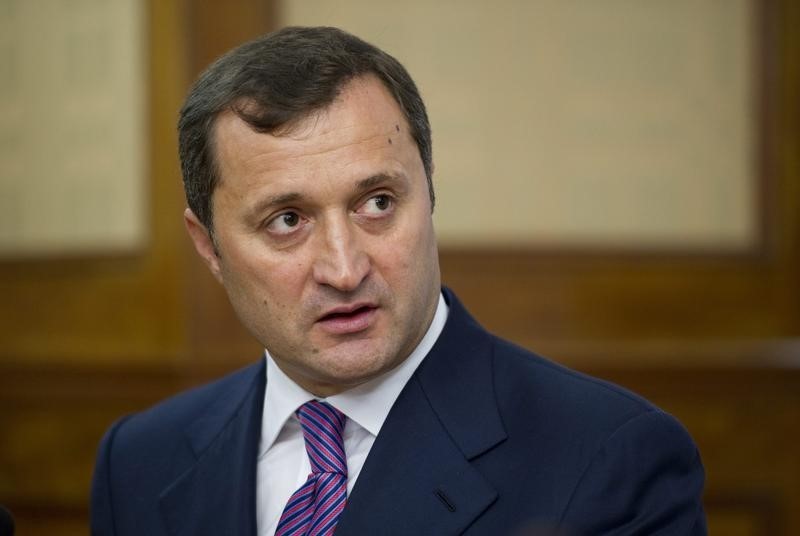By Alexander Tanas
CHISINAU (Reuters) - Phone conversations posted online on Tuesday purported to show former Moldovan prime minister Vlad Filat asking for bribes from a local businessman, who has been accused along with Filat of involvement in the theft of $1 billion from three banks.
Filat was detained by police on Thursday over a possible connection to the fraud which has brought the banking system close to collapse and brought thousands into the centre of the capital Chisinau where they have camped in protest for weeks.
The phone conversations, posted on Facebook (O:FB) by protest leader Renato Usatii, appear to be of Filat asking for cash from billionaire Ilan Shor in exchange for helping him resolve business issues and easing his relations with Prime Minister Valeriu Strelet.
"It's best if you help financially. Money is needed for new underwear," someone who sounds like Filat tells Shor on the recording.
One of the recordings appears to have been made on Oct. 13, the day before Shor confessed to police he had made payments to Filat. In it, a male voice that sounds like Shor's, describes bringing 20 million lei ($1 million) to Filat's office.
Representatives for Shor and Filat did not respond to requests for comment on the veracity of the recordings or their content.
Moldovans have camped out in Chisinau since early September, protesting against government corruption and demanding those in power be held accountable for the banking fraud in which the equivalent of one eighth of gross domestic product vanished overseas.
An investigation by investigative agency Kroll pointed the finger at Shor in May, but he denied any involvement in the crime and has since been elected mayor of a small town close to the capital.
Filat, who heads the pro-European Liberal Democrat Party of Moldova (LDPM) and served as prime minister from 2009 to 2013, has also denied any connection to the crime.
Insiders have said the fraud - which had been going on for years until it hit a peak in 2014 - reflects deep-seated corruption in Moldova and involved some degree of complicity from many of those in power since 2009.
The case has held up the disbursement of valuable budget support from international lenders and highlighted the corrosive rivalry between oligarch groups in Moldova that might yet derail the course it wants to chart towards European integration.
Moldova, sandwiched between Romania and Ukraine, is one of Europe's poorest countries. It is trying to reorient its economy towards the European Union after economic turbulence in Russia, its Soviet-era overlord, hit the pace of its own growth.
